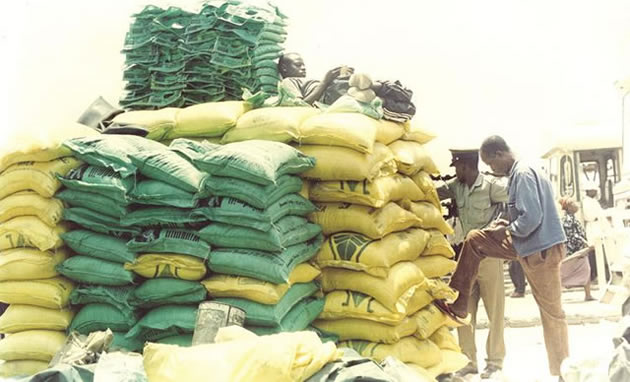CIPS: Liberating world from US financial tyranny

 Lloyd Gumbo Senior Reporter
Lloyd Gumbo Senior Reporter
THE introduction of the China International Payment System that will see the Asian giant’s currency — renminbi internationalised to the extent of being on equal footing with global currencies in trade has generally been received as good news by the world in general and Zimbabwe in particular.
The greatest score of this initiative is that it creates an alternative in world trade where countries that do business with China-the world’s fastest growing economy will be able to make or receive payments using the Yuan.
At the moment, the US dollar and the euro are the world’s first and second largest reserves and traded currencies in the world.
Unfortunately, the world power houses have abused their dominance in international transactions that are done either in US dollar or euro, way beyond their mandate of annihilating money laundering and other illicit transactions.
What the world has learnt for free is that the US and the EU bloc’s foreign policies dictate how all their institutions should behave.
Any country that is politically not in good books with either of the two, it is almost a given that its transactions in either currencies will be difficult or frustrated and Zimbabwe bears testimony to that having lost millions through illegal seizures or interception of its payments.
In essence, one cannot separate the US and the EU bloc’s foreign policies when it comes to international transactions.
The US pokes its nose on any transaction that is done in their currency giving themselves the right to process, deny or seize any legal payments or transactions through the Treasury Department’s Office of Foreign Assets Control (Ofac) while on the other hand, the European bloc through its Germany-based European Central Bank can do the same.
On the other hand, China has been known to distance itself when it comes to internal politics affecting its trading partners in the process creating more friends for them than enemies.
It is without doubt that this development advanced by China is meant to benefit them more than anyone else, as it grows the renminbi offshore market.
However, the CIPS will also facilitate smooth cross-border transactions between Beijing and its trading partners the world over.
Its partners under the auspices of the BRICS (Brazil, Russia, India, China and South Africa) bloc are already transacting using the Chinese yuan as was reported by the Society for Worldwide Interbank Financial Telecommunication (SWIFT) in August this year that more than 30 percent of payments made between South Africa and Greater China were done using the Chinese yuan.
Analysts argue that, given the fact that Zimbabwe’s yuan reserves are less than $1 million, the country is unlikely to benefit much from the CIPS.
But now that the CIPS is here and likely to dominate international transactions given that country’s productivity level targeting the international market, there are things that Zimbabwe has to do to draw benefits from the new system.
Former ambassador to China, Ambassador Christopher Mutsvangwa said Zimbabwe and China are major trading partners whose transactions were done through third-party currencies in the process increasing costs.
“This is very expensive, circuitous and a debilitating constraint on growth of bilateral trade so short-changing on desired prosperity.
“Furthermore, the globalisation of the yuan renminbi is seeing the currency soon become part of the IMF special drawing rights ahead of the Japanese Yen behind the US dollar, British Pound and Euro. So there is no unusual foreign exchange risk. Indeed many central banks are now holding growing yuan reserves.
“Finally, China is now Africa’s largest source of long term infrastructure finance. It makes sense to align our cross Zimbabwe dollar currency to this important outward investing country,” he said.
As was put across by the Central Bank Governor, Dr John Mangudya, there is need for Zimbabwe to concentrate more on productivity if it is to benefit from this initiative.
“What we desperately need in Zimbabwe is productivity to benefit from such positive development,” he said.
“We do not always need to talk of paying out but receiving forex. That is our liquidity.”
Given our ailment, what the doctor prescribed is exactly what we need.
The greatest problem that we have in this trade partnership with China is that we are always the buyers while our all-weather friends are the sellers.
As a result, this leads to capital flight as the little forex that we have finds itself to China with little coming from the opposite direction.
We cannot wish the situation away as long as our productivity levels are low which explains why there always these complaints about Chinese compani0es bringing equipment some of it elementary, to carry out construction work here.
What we need is a competitive productive sector that is able to satisfy demand and attract investment.
Big projects that run into hundreds of millions of US dollars are won by Chinese companies given their competitive pricing and financing model where they source capital from Beijing’s financial institutions.
The implementation model is that the huge capital never find its way to the local market to steer economic activity because the majority of high-cost raw materials are imported from China instead of buying the equipment here using the money that they would have sourced.
Today, China tells us that they have invested billions of US dollars in investment in Zimbabwe, but the investment comes in the form of projects and not liquidity that we desperately need.
But one cannot begrudge the Chinese for that, because we are not producing required raw materials that the Chinese contractors could use.
China is our biggest trading partner though skewed, but this will continue given their technological advancement so they will do most of the infrastructure development here and they will bring the raw materials some of which, we can produce but are not producing.
That is where our Achilles heel cripples us because if we could produce the required raw materials for some of the mega projects in the country, forex from Chinese financial institutions would find its way here and trigger significant economic growth.
Chinese money would buy excavators, turbines and generators from the local industry in the process bringing in the much-needed forex in this case, the yuan that we would then conveniently change to the popular currency here,.
So as long as we do not address our productive sector, we will not attract significant capital inflow from China through its international payment system that it has introduced.
Selling animals to China will not attract significant forex that would do wonders to our economy, something that a working productivity sector would certainly deliver.







Comments